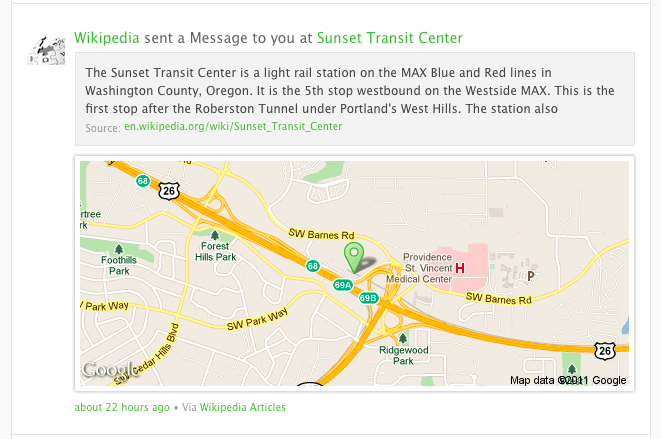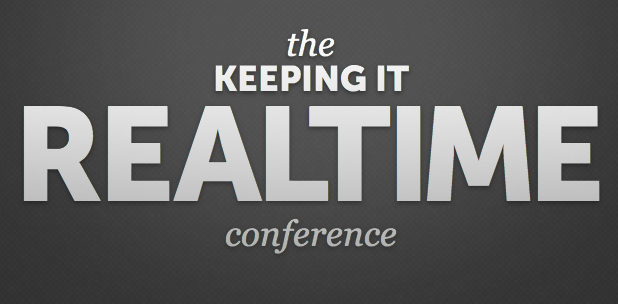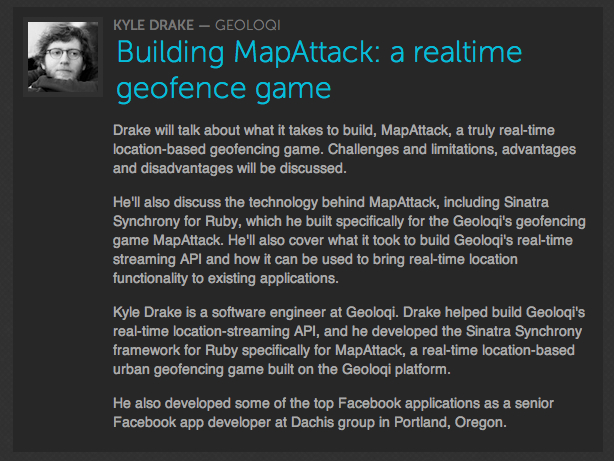Geoloqi Launches Powerful Next-Generation Location-Based Service Platform
Enterprise and Developers Can Now Create Real Time Applications and Services That Meet the Growing Demands of the Mobile Workforce and Consumer

PORTLAND, OR – February 23, 2012 – Geoloqi, a powerful platform for next-generation location based services, officially launches today along with its language agnostic SDK for iOS and Android, and proprietary API. Geoloqi offers a complete stack of geolocation tools, including geo-fencing, messaging, security and analytics, that empowers the enterprise, government and developers to unlock the full potential of real-time location-based services and easily layer geolocation onto any device or application.
The Geoloqi platform disrupts first generation location services by offering a complete, cross-platform, language, device and carrier agnostic platform for enterprise applications and IP-connected devices. A contextually aware solution, it enables persistent background location tracking, intelligent battery management, and transitions smoothly between location sources such as carrier signals, GPS and Wifi for true real-time tracking. Additionally, Geoloqi provides rich location and dwell-time analytics, giving customers the ability to analyze and take action on location data for the first time. The platform also provides sophisticated security settings with easy opt-in and opt-out features to ensure safety and privacy practices are automatically updated at any time. Enterprises and developers can now easily create solutions for the mobile workforce and consumers with improved productivity, functionality, and logistics for any wireless climate.
An upwards of 50 billion connected devices will be on the market by the year 2020 according to Ericsson, including wireless phones, cars, home appliances, GPS devices, cameras, and myriad other devices for businesses, government and consumers. According to Pyramid Research, the location-based services market is expected to grow to $10 billion by 2015. ABI Research has also projected location analytics to also grow significantly, and estimates it will become a $9 billion market by 2016. The market for next-generation location has barely been tapped.
A Closer Look at the Next-Generation Location Platform: Geoloqi
Below is an in-depth list of the complete features and functionality that Geoloqi’s platform provides via its SDK and server-based solution.
Device/ Language/ Carrier Agnostic:
Geoloqi offers a language agnostic, cross platform SDK with native support for iOS and Android, and is fully portable to Windows and embedded systems. The platform enables customers to easily add location to any device, on any platform, and deliver it through any carrier or system around the world.
Geofencing/ Battery Safe Trigger Zones:
The Geoloqi SDK enables accurate, customizable geofencing, auto-check ins, and automatically manages a device’s battery life while using location, so users can run the app all day without significant battery drain.
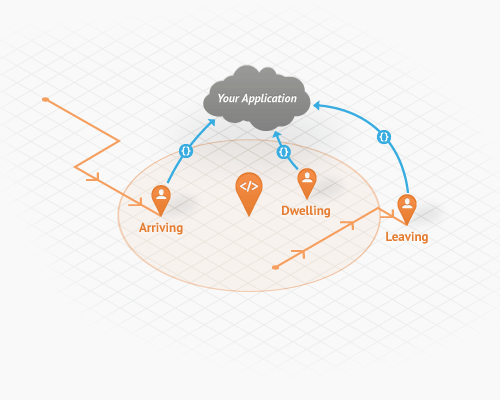
Hosted Spatial Storage:
Spatial storage allows you to create and store places, messages, and geofences. Create private places, quickly import datasets, search for nearby places and automatically sync relevant data to users. Geoloqi is optimized for use with real-time applications and battery-safe operations.
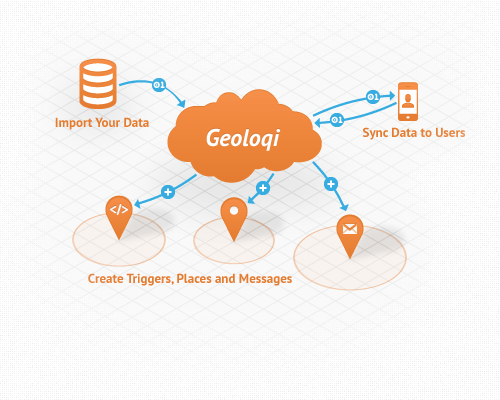
Rich dwell-time and location-based analytics:
Geoloqi provides deep, real-time analytics on users and their location data and history and allows customers to create custom reports. It provides rich analytics and visualizations for tracking users, geofences and message conversions, place dwell time, visitor metrics, and more.
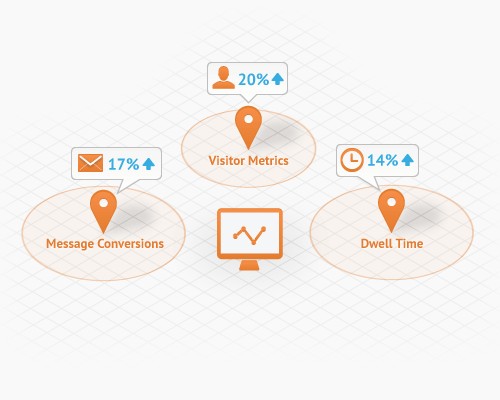
Real-Time Location Tracking:
Geoloqi makes it simple to implement full-featured, real-time tracking in and out of doors, with minimal time and effort. Geoloqi offers SDKs for iOS, Android, Javascript, Ruby, PHP and more.
![]()
Location-Based Messaging:
Push messages to end users upon arriving, dwelling or leaving a place, as well as based off of time or day or a user’s speed. Messaging works with any carrier and enables notifications for iOS and Android, SMS and Email for all devices.
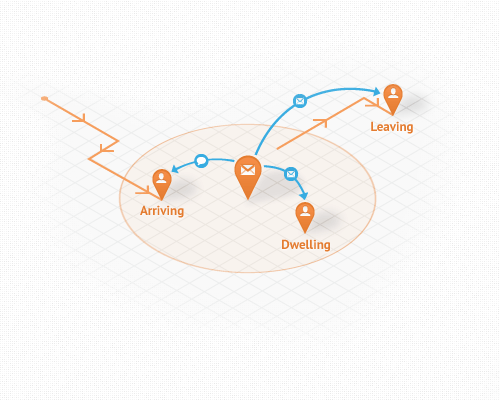
The Market to Date
To date, there has been an obvious disconnect between what developers, carriers and enterprise companies can offer business-to-business and business-to-consumer mobile products and services. Current location technologies have been pieced together by small vendors with limited functionality or built by in-house teams that do not have core location competency, making it challenging to develop reliable location-based applications and services. Very few companies have been able to take advantage of the possibilities that an advanced geolocation platform can offer. Today, Geoloqi can power truly mobile businesses, products and services with its next-generation location platform. Geoloqi solves all of the pending issues with first generation products like carrier dependence, privacy, development time, battery drain, and language silos.
Executive & Customer Quotes
“There’s no denying that we now live in an increasingly mobile world. Geolocation has the potential to become an indispensable part of our lives,” said Amber Case, CEO and founder of Geoloqi. “But in order for geolocation to be a valuable service to end users, the technology needs to be invisible yet opted into, private, and secure. There are incredible business opportunities and mobile advancements in markets like retail, security, healthcare, government, to a name a few. We’re inspired by the kinds of applications and services our customers are creating with Geoloqi and to be part of the tools that drive mobile innovation forward.”
“With Geoloqi, we’re able to track our personnel in real-time, anywhere in the world, on any device, ultimately saving lives in the process,” said David Ayres, of TATE, Inc. “For example, men and women working or traveling in high-risk areas will receive an emergency alert if they enter a dangerous area of a city or town. Geoloqi has taken safe geolocation to the next level.”
Going to SXSW Interactive?
 Founder and CEO Amber Case will be a keynote speaker at SXSW Interactive in March, where she’ll take the stage to discuss more implications of next generation geolocation, and have some exciting giveaways. To learn more about Geoloqi and unleash the power of location today, visit www.geoloqi.com.
Founder and CEO Amber Case will be a keynote speaker at SXSW Interactive in March, where she’ll take the stage to discuss more implications of next generation geolocation, and have some exciting giveaways. To learn more about Geoloqi and unleash the power of location today, visit www.geoloqi.com.
About Geoloqi
Geoloqi is a powerful platform for real-time location based services, and makes it simple for enterprise partners, OEMs and mobile developers to quickly add rich geolocation functionality to apps and devices. It provides a complete, real-time toolkit for tracking, messaging, battery management, geofencing, storage and actionable analytics, with a language agnostic SDK and proprietary API. Founded in 2010, Geoloqi is based in Portland, OR and backed by Portland Seed Fund and TIE. For more information on Geoloqi, please visit www.geoloqi.com or follow @geoloqi on Twitter.
Media Contact
Vanessa Camones & Jennifer Lankford
theMIX agency for Geoloqi
[email protected]



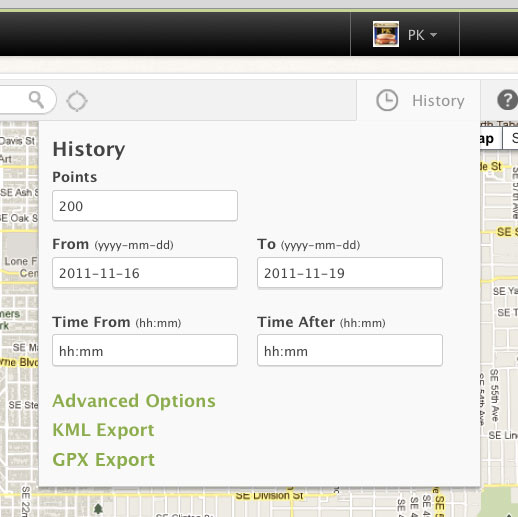

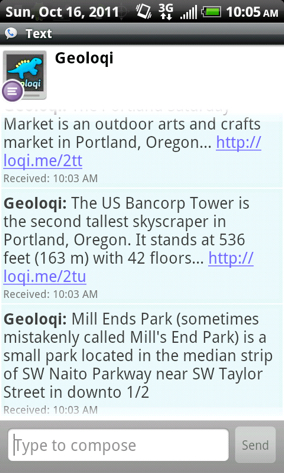
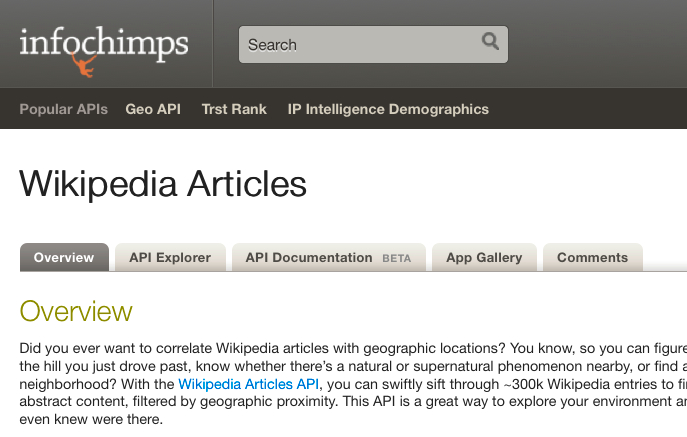
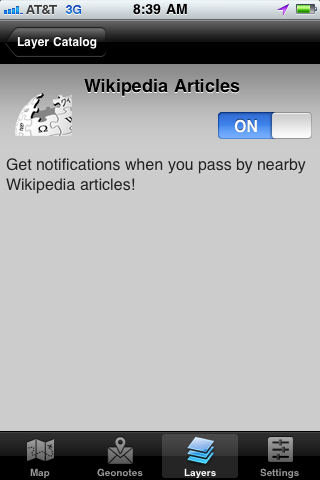 Yesterday when I was heading into the office, I passed a curious building that I wanted to know more about, so I turned on the Geoloqi Wikipedia layer.
Yesterday when I was heading into the office, I passed a curious building that I wanted to know more about, so I turned on the Geoloqi Wikipedia layer. 